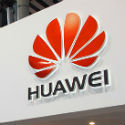
Huawei has slammed charges brought against it by the US Department of Justice (DoJ), complaining that requests to speak with authorities were inexplicably denied and that it has already been cleared of stealing trade secrets from T-Mobile US.
The rebuttal came as Australia's TPG Telecom backed out of plans to build a fourth mobile network because of a government ban on Huawei Technologies Co. Ltd. and with Germany's Deutsche Telekom AG (NYSE: DT) warning that any similar restrictions in Germany would delay 5G rollout by at least two years.
Huawei's response came shortly after a New York court laid out full details of the DoJ charges against Chief Financial Officer Meng Wanzhou, who has been detained in Canada since December and is now facing extradition to the US. (See US Pursues Criminal Charges Against Huawei.)
Figure 1: 
American officials have accused Meng of covering up links between Huawei and Skycom -- an equipment maker that appears to have conducted business with Iran in breach of US sanctions -- during conversations with banking partners. As far as US authorities are concerned, Skycom is a Huawei subsidiary. (See Huawei Controlled Firm That Sold to Iran – Reuters .)
Separately, a district court in Washington State has resurrected charges that several years ago Huawei tried to steal trade secrets from US carrier T-Mobile US Inc. relating to a robotic phone-testing device called Tappy. (See T-Mobile Accuses Huawei of Espionage.)
In a statement, Huawei said it was disappointed to learn of the charges. "After Ms Meng's arrest, the company sought an opportunity to discuss the Eastern District of New York investigation with the Justice Department, but the request was rejected without explanation," it said. "The allegations in the Western District of Washington trade secret indictment were already the subject of a civil suit that was settled by the parties after a Seattle jury found neither damages nor wilful and malicious conduct on the trade secret claim."
Huawei added: "The company denies that it or its subsidiary or affiliate have committed any of the asserted violations of US law set forth in each of the indictments, is not aware of any wrongdoing by Ms Meng, and believes the US courts will ultimately reach the same conclusion."
The filing of official charges against Huawei has raised the possibility that US authorities will seek to ban it from acquiring any US components -- a measure they last year took against smaller Chinese rival ZTE Corp. (Shenzhen: 000063; Hong Kong: 0763). (See Amid the rubble of L'Aquila, ZTE tries to rebuild.)
Michael Genovese, a financial analyst with MKM Partners, said there was now a "higher than 50% probability" of such restrictions.
Huawei's network equipment and devices rely on components from optical equipment makers such as NeoPhotonics Corp. (NYSE: NPTN) and Lumentum Holdings Inc. as well as semiconductor firms including Qualcomm Inc. (Nasdaq: QCOM). While less heavily dependent than ZTE on US components, Huawei could suffer badly if any restrictions came into effect.
Spies at the door
The US case against Huawei is developing amid a security backlash in other parts of the world. Government officials and security watchdogs in several countries are apparently concerned about close links between Huawei and the Chinese military. They worry that Huawei's equipment could include "back doors" to facilitate Chinese spying. (See Where Huawei Fears to Tread and How the West Can Hurt Huawei.)
In Australia, which has already banned Huawei from participating in 5G tenders, cable operator TPG today said it would stop work on a new mobile network it was building with the Chinese vendor.
Status | Country | Details | Known Huawei customers | Other major telcos affected by restrictions |
Govt restrictions | USA | US House of Representatives warned major service providers off using Chinese vendors in 2012, arguing "the risks associated with Huawei's and ZTE's provision of equipment to US critical infrastructure could undermine core US national-security interests." US temporarily banned component sales to ZTE earlier this year | None among Tier 1 telcos, but Sprint acquired Huawei gear with its Clearwire takeover and still had this in its network in 2016, as revealed by Light Reading | AT&T, T-Mobile US, Verizon |
Govt and operator restrictions | Australia | Both Huawei and ZTE are barred from the 5G market and cannot sell products to NBN Co, Australia's national wholesale network. In January, TPG stops building a 4G network with Huawei | Vodafone Hutchison Australia, TPG | Telstra, Optus |
Govt restrictions | New Zealand | The government has warned Spark off using Huawei's 5G equipment and by implication would not tolerate 5G deals between Chinese equipment vendors and other telcos | Spark | Vodafone New Zealand, 2degrees |
Govt and operator restrictions | Japan | Starting in April 2019, Japan's government will ban its ministries and defense forces from buying and deploying IT and telecoms equipment from Chinese companies, citing cybersecurity concerns; SoftBank is reportedly replacing Huawei as a 4G supplier | SoftBank | NTT DoCoMo, KDDI, Rakuten |
Govt warning; operator restrictions | UK | Security watchdogs have flagged vulnerabilities in Huawei's equipment; telecom incumbent BT is stripping Huawei out of its mobile core and optical networks and says it will not buy any of Huawei's mobile edge computing products | BT, Three UK | O2, Vodafone UK |
Govt restrictions | Taiwan | Ban on equipment developed by either Huawei or ZTE has been in place for the last five years and was recently renewed, according to press reports | None | Chunghwa Telecom, Taiwan Mobile, Far EasTone and Taiwan Star |
Operator restrictions | France | Orange tells Bloomberg it will not use Huawei as a 5G kit supplier; Orange subsequently confirms to Light Reading that comments were made "in the context of France" | Altice, Bouygues Telecom | Orange, Iliad |
Operator restrictions | Spain | Vodafone CEO Nick Read says he will "pause" the rollout of Huawei products in core networks, deemed to be the most sensitive part of the infrastructure, amid government security concerns. Vodafone, he said, uses Huawei's core equipment in Spain and some smaller European markets | MasMovil, Orange, Telefonica, Vodafone | - |
Govt warning | Poland | Poland is poised to exclude Huawei from its 5G market, according to a Reuters report citing government sources, after its recent arrest of a Huawei employee on charges of spying | Orange, Play, Polkomtel, T-Mobile | - |
Source: Light Reading, various news outlets. |
According to reports in the mainstream press, TPG executives now think it makes no sense to continue building a 4G network that cannot be upgraded to 5G.
"The company has been exploring if there are any solutions available to address the problem created by the Huawei ban but has reached the conclusion that it does not make commercial sense to invest further shareholder funds (beyond that which is already committed) in a network that cannot be upgraded to 5G," TPG is quoted as saying by various press outlets.
On Twitter, Huawei's Australian office has responded to the TPG move with a series of messages, writing that: "TPG's move is extremely disappointing for Australian consumers and businesses. As predicted, the Australian government's 5G ban on Huawei will lead to reduced competition and higher prices for Australian consumers and businesses."
TPG’s announcement is extremely disappointing for Australian consumers and businesses. As predicted the Australian Government’s 5G ban on Huawei will lead to reduced competition and higher prices for Australia consumers and businesses.
— Huawei Australia (@HuaweiOZ) January 29, 2019
With some government officials in Germany said to be in favor of a similar Huawei ban, Deutsche Telekom, the country's biggest operator, has warned in an internal assessment seen by Bloomberg that excluding Huawei would seriously hinder 5G rollout in Europe.
Huawei is one of two suppliers of radio access network equipment to Deutsche Telekom in Germany, the other being Sweden's Ericsson AB (Nasdaq: ERIC). Deutsche Telekom has also started its 5G rollout with Huawei, which recently claimed to have shipped about 25,000 5G basestations worldwide, and is understood to use Huawei in the core of its mobile network. (See DT Poised for 5G Launch as Huawei Antennas Go Up in Berlin.)
Its warning of a two-year delay, and significant associated costs, could reflect the difficulty of removing Huawei from both the RAN and the core, especially as most initial 5G deployments will use a 5G RAN in conjunction with the 4G core.
You're invited to attend Light Reading’s Big 5G Event! Formerly the Big Communications Event and 5G North America, Big 5G is where telecom's brightest minds deliver the critical insight needed to piece together the 5G puzzle. We'll see you May 6-8 in Denver -- communications service providers get in free!
Vodafone CEO Nick Read last week said that removing Huawei from the core of the network would be a two-year job because of operational complexity. The UK-headquartered operator has paused its rollout of Huawei core network gear in Spain and smaller European markets while it holds discussions with government authorities and security agencies. (See Huawei Controversy Pits Spooks Against CSPs.)
UK incumbent BT Group plc (NYSE: BT; London: BTA) is now stripping Huawei gear out of the intelligent core of the mobile networks it acquired in 2016 with its takeover of EE. A spokesperson for the company previously told Light Reading the process could take even longer than two years. (See Huawei Cut Out of BT's Mobile Core, Optical & Edge Plans.)
The clampdown on Huawei and ZTE is likely to benefit European rivals Ericsson and Nokia Corp. (NYSE: NOK), which along with South Korea's Samsung Electronics Co. Ltd. (Korea: SEC) represent the only viable alternatives to the Chinese companies following years of industry consolidation.
But Ericsson CEO Börje Ekholm has played down talk of an upside for his firm, arguing that current circumstances have merely brought "uncertainty" for global telcos. "That is not good for investments," he told analysts and reporters during an earnings call last week. (See Ericsson Hails First Annual Sales Growth Since 2013 as 5G Comes Calling.)
Nokia is due to report its fourth-quarter results on Thursday.
— Iain Morris, International Editor, Light Reading
About the Author(s)
You May Also Like












